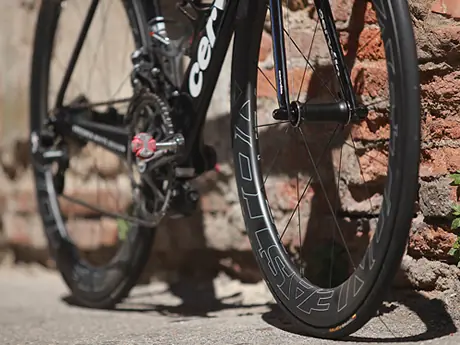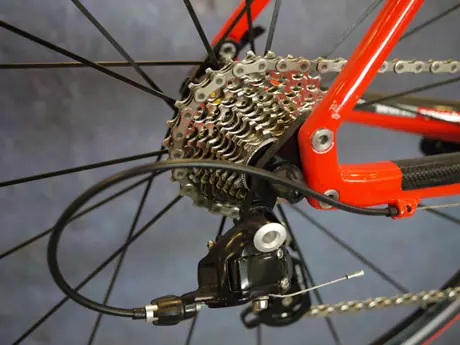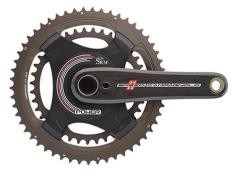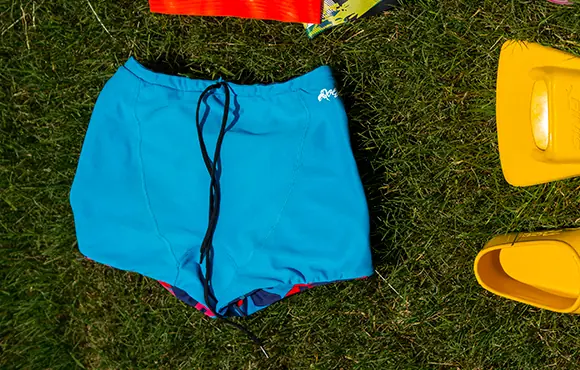
I was in Tijuana, Mexico late last year visiting Easton EMX, Easton's wheel development facility, to see how the wheels were developed in Mexico for production in Asia. As a small collection of media was queued in a room for the tour, a wheel leaning against box in the corner caught my eye. It looked...different.
I cruised over, lifted it high over my head and asked in an innocent tone, "what's this?" Heads swiveled. Clearly, I had some "project" in hand. An alarmed Easton employee rushed over, relieved me of the wheel and hurried it out of sight. "This was not to be seen by you guys."
But I could not unsee it; I knew Easton was headed toward the industry trend of wider rims for increased aerodynamics. But I didn't know the backstory on its shape.
Months later, while all new-tech eyes were looking at the Tour de France, it was Ironman Austria where the EC90 Aero 55 was spied as the front wheel (along with a disc) that carried Andreas Raelert to a win and sub-eight-hour performance.
More: How to Choose the Best Bike Wheels
Easton has now unveiled that wheel: The new EC90 Aero 55. It's a 55mm deep wheelset with its own new wider shape, its own aero storyline and a marked hubset improvement. The combination results in what Easton claims makes for the new category (50-60mm rim depth wheels) leader.
Raelert's result on the covert wheel is one thing, but given this wheel's all-around performance story, it's going to be better suited to the rest of us age groupers, at slower speeds, on different courses, at different wind angles. In short, the Aero 55 is cycling's version of the utility player: damn good at doing it all.
The Aero 55 has been several years in the making. While it's easy to lump Easton's Aero 55 in with the rest of the wide rim lot, the Easton rim's cross-section shape is very much its own.
The eight-year development, which took place both within CFD programs and in 10 separate testing sessions at the San Diego Low Speed Wind Tunnel, came with an assist from noted aerodynamicist Len Brownlie.
The Aero 55 with a 16-spoke radial front, 20-spoke rear configuration, will be available in two versions: a standard tubular and a fully certified Tubeless-ready carbon clincher; it has a fully-sealed interior (i.e., no spoke holes) without the need for carbon rim bands. Just install the valve core, tire and a bit of sealant and you have a bombproof wheel.
More: Do You Need a Tri Bike?
- 1
- of
- 4









Discuss This Article